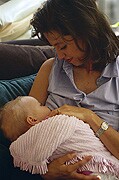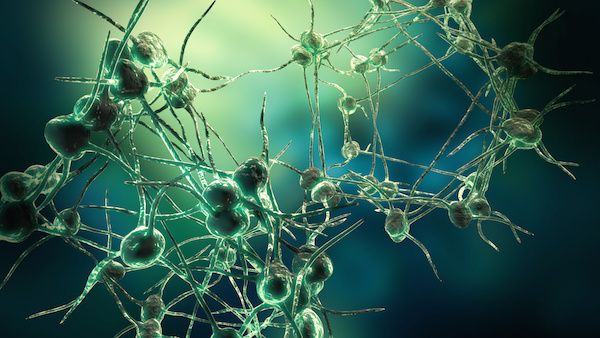
THURSDAY, Sept. 8 (HealthDay News) — Many new mothers feel a bit anxious about caring for their infant. But sometimes that concern develops into an obsession over all the things that can go wrong.
Experts call that condition postpartum obsessive compulsive disorder. It can drive women to take extreme steps to prevent their fears from coming true, such as endlessly washing the infant to stave off germs to the point where the baby develops sores, or refusing to hold the baby out of fear of dropping him.
Although postpartum depression gets far more attention, postpartum OCD can also be harmful to mother and child, said Kiara Timpano, an assistant psychology professor at University of Miami in Florida.
“It’s a very normal part of parenting to want to try to protect and keep your children safe,” Timpano said. “What happens with OCD is that natural vigilance is turned up way too high.
Not only do moms with OCD worry excessively, they become so distressed by their thoughts that they try to control them through ritualistic or repetitive behaviors, Timpano said.
“For example, a mother may be overwhelmed by thoughts about her baby getting sick from germs, and may respond by washing the baby bottles for hours at a time,” she said. “Very quickly, these symptoms can start to take over an individual’s life.”
About 1 in 100 adults has OCD, Timpano said. Getting a firm estimate on how many new moms experience postpartum OCD is difficult, but researchers said the number ranges from 2 to 9 percent, with symptoms ranging from mild to severe.
It’s unknown what triggers it, but women who’ve had anxiety disorders or OCD before giving birth are more vulnerable, Timpano said. Having a baby is an enormous life transition accompanied by huge hormonal and other physiological changes, which may contribute.
To see if postpartum OCD is preventable, Timpano and her colleagues recruited 71 mothers who reported having significant anxiety, but not an anxiety disorder, prior to birth.
Moms were enrolled in either a regular childbirth education class, or a class that taught the warning signs of OCD and techniques to deal with the symptoms. They were followed at one, three and six months after their baby was born.
Moms in the intervention class had less anxiety and developed better coping skills for dealing with their “intrusive thoughts” than moms in the regular class, according to the study published online ahead of print in the Journal of Psychiatric Research.
What separates women who are prone to OCD from those who aren’t includes certain ways of thinking about things, said Eric Storch, an associate professor of pediatrics, psychiatry and psychology at the University of South Florida Medical School who has studied postpartum OCD.
For example, many mothers may have a disturbing thought pop into their head, such as a fear of accidentally drowning the baby during a bath. But for moms with OCD, instead of that being a passing thought that’s quickly dismissed and forgotten, it gets replayed again and again in their minds until they start to fear they may actually do it, Storch said.
That’s why postpartum OCD is sometimes mistaken for postpartum psychosis, a severe form of depression in which the mother may experience delusions and is at risk of hurting her baby, Storch said. Moms with postpartum OCD are at little risk of hurting the baby, he said.
“There are cases in which very non-psychotic women are being hospitalized because a physician fears they’re going to harm their kids, when moms with postpartum OCD may be the least likely to harm their kids,” Storch said.
OCD can be difficult to treat, although cognitive behavioral therapy, which teaches people ways to cope with and change their worrisome thoughts, can help. Some women also have depression along with postpartum OCD, so antidepressants may also alleviate symptoms, Timpano said.
Both experts agreed more needs to be done to identify women suffering with postpartum OCD.
“Depression and psychosis have gotten the lion’s share of attention, and there are good reasons for that,” Storch said. “But there is a very sizable number of women who have an increase in obsessive compulsive symptoms immediately following the birth of the child.”
More information
The U.S. National Institute of Mental Health has more on OCD.

